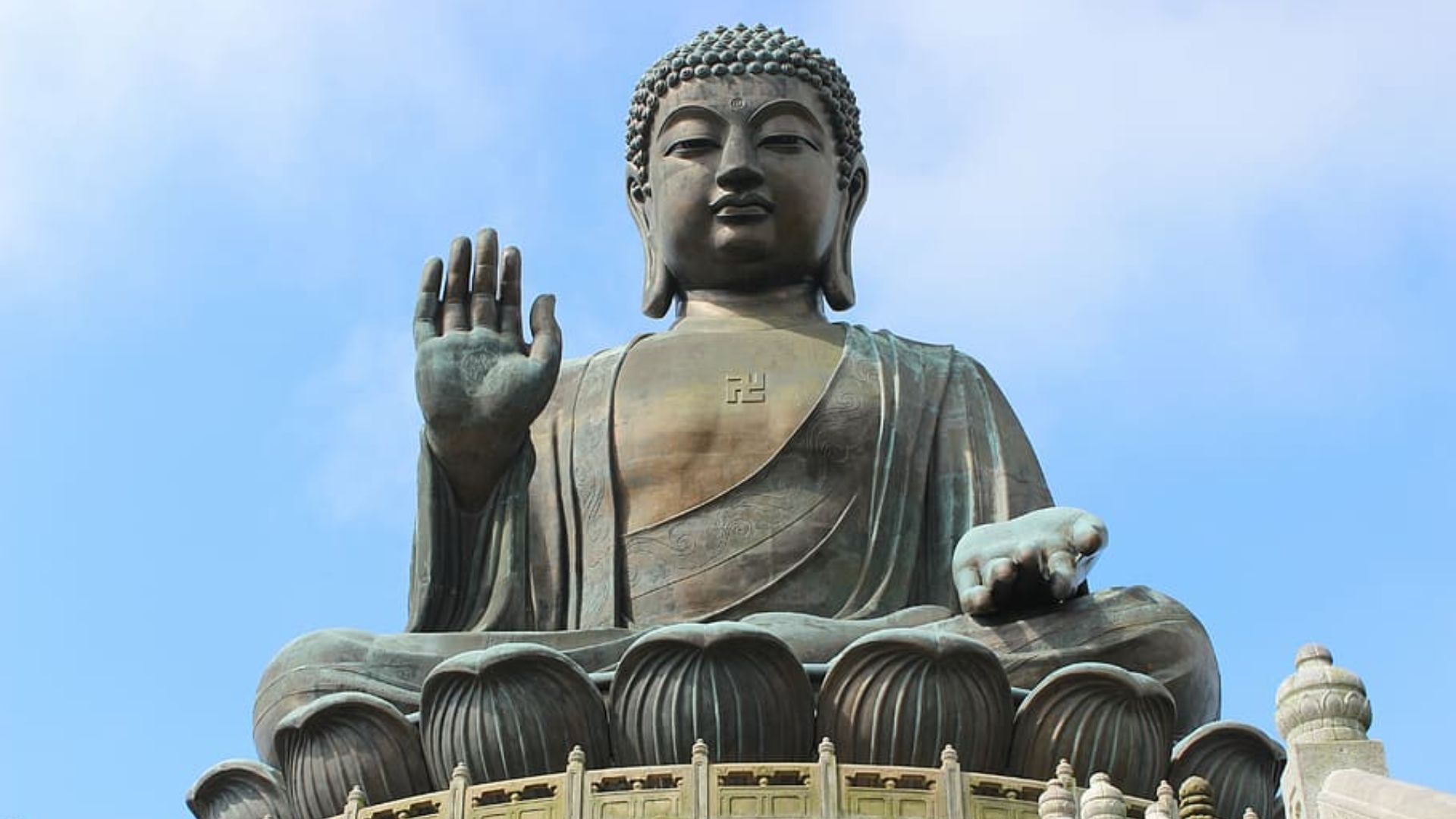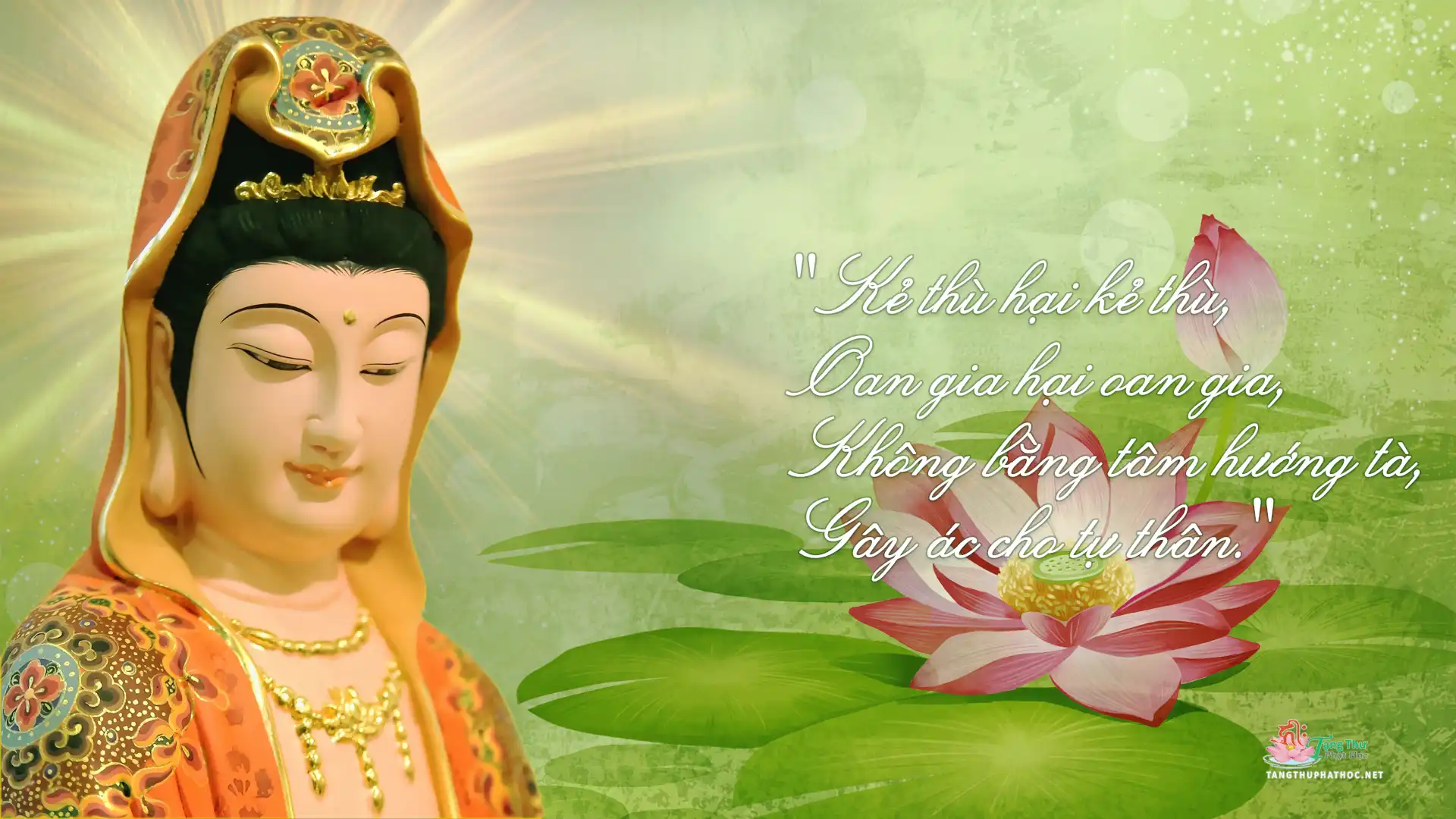Vyagghapajja Sutta
Conditions of Welfare
Translated from the Pali by Narada Thera
Translator’s note: In this Sutta, the Buddha instructs rich householders how to preserve and increase their prosperity and how to avoid loss of wealth. Wealth alone, however, does not make a complete man nor a harmonious society. Possession of wealth all too often multiplies man’s desires, and he is ever in the pursuit of amassing more wealth and power. This unrestrained craving, however, leaves him dissatisfied and stifles his inner growth. It creates conflict and disharmony in society through the resentment of the underprivileged who feel themselves exploited by the effects of unrestrained craving.
Therefore the Buddha follows up on his advice on material welfare with four essential conditions for spiritual welfare: confidence (in the Master’s enlightenment), virtue, liberality, and wisdom. These four will instill in man a sense of higher values. He will then not only pursue his own material concern, but also be aware of his duty towards society. To mention only one of the implications: a wisely and generously employed liberality will reduce tensions and conflicts in society. Thus the observing of these conditions of material and spiritual welfare will make for an ideal citizen in an ideal society.
Thus have I heard:
Once the Exalted One was dwelling amongst the Koliyans,[1] in their market town named Kakkarapatta. Then Dighajanu,[2] a Koliyan, approached the Exalted One, respectfully saluted Him and sat on one side. Thus seated, he addressed the Exalted One as follows:
“We, Lord, are laymen who enjoy worldly pleasure. We lead a life encumbered by wife and children. We use sandalwood of Kasi. We deck ourselves with garlands, perfume, and unguents. We use gold and silver. To those like us, O Lord, let the Exalted One preach the Dhamma, teach those things that lead to weal and happiness in this life and to weal and happiness in future life.”
Conditions of Worldly Progress
“Four conditions, Vyagghapajja, [3] conduce to a householder’s weal and happiness in this very life. Which four?
“The accomplishment of persistent effort (utthana-sampada), the accomplishment of watchfulness (arakkha-sampada), good friendship (kalyanamittata) and balanced livelihood (sama-jivikata).
“What is the accomplishment of persistent effort?
“Herein, Vyagghapajja, by whatsoever activity a householder earns his living, whether by farming, by trading, by rearing cattle, by archery, by service under the king, or by any other kind of craft — at that he becomes skillful and is not lazy. He is endowed with the power of discernment as to the proper ways and means; he is able to carry out and allocate (duties). This is called the accomplishment of persistent effort.
“What is the accomplishment of watchfulness?
“Herein, Vyagghapajja, whatsoever wealth a householder is in possession of, obtained by dint of effort, collected by strength of arm, by the sweat of his brow, justly acquired by right means — such he husbands well by guarding and watching so that kings would not seize it, thieves would not steal it, fire would not burn it, water would not carry it away, nor ill-disposed heirs remove it. This is the accomplishment of watchfulness.
“What is good friendship?
“Herein, Vyagghapajja, in whatsoever village or market town a householder dwells, he associates, converses, engages in discussions with householders or householders’ sons, whether young and highly cultured or old and highly cultured, full of faith (saddha),[4] full of virtue (síla), full of charity (caga), full of wisdom (paññá). He acts in accordance with the faith of the faithful, with the virtue of the virtuous, with the charity of the charitable, with the wisdom of the wise. This is called good friendship.
“What is balanced livelihood?
“Herein, Vyagghapajja, a householder knowing his income and expenses leads a balanced life, neither extravagant nor miserly, knowing that thus his income will stand in excess of his expenses, but not his expenses in excess of his income.
“Just as the goldsmith,[5] or an apprentice of his, knows, on holding up a balance, that by so much it has dipped down, by so much it has tilted up; even so a householder, knowing his income and expenses leads a balanced life, neither extravagant nor miserly, knowing that thus his income will stand in excess of his expenses, but not his expenses in excess of his income.
“If, Vyagghapajja, a householder with little income were to lead an extravagant life, there would be those who say — ‘This person enjoys his property like one who eats wood-apple.'[6] If, Vyagghapajja, a householder with a large income were to lead a wretched life, there would be those who say — ‘This person will die like a starveling.’
“The wealth thus amassed, Vyagghapajja, has four sources of destruction:
“(i) Debauchery, (ii) drunkenness, (iii) gambling, (iv) friendship, companionship and intimacy with evil-doers.
“Just as in the case of a great tank with four inlets and outlets, if a man should close the inlets and open the outlets and there should be no adequate rainfall, decrease of water is to be expected in that tank, and not an increase; even so there are four sources for the destruction of amassed wealth — debauchery, drunkenness, gambling, and friendship, companionship and intimacy with evil-doers.
“There are four sources for the increase of amassed wealth: (i) abstinence from debauchery, (ii) abstinence from drunkenness, (iii) non- indulgence in gambling, (iv) friendship, companionship and intimacy with the good.
“Just as in the case of a great tank with four inlets and four outlets, if a person were to open the inlets and close the outlets, and there should also be adequate rainfall, an increase in water is certainly to be expected in that tank and not a decrease, even so these four conditions are the sources of increase of amassed wealth.
“These four conditions, Vyagghapajja, are conducive to a householder’s weal and happiness in this very life.
Conditions of Spiritual Progress
“Four conditions, Vyagghapajja, conduce to a householder’s weal and happiness in his future life. Which four?
“The accomplishment of faith (saddha-sampada), the accomplishment of virtue (sila-sampada), the accomplishment of charity (caga-sampada) and the accomplishment of wisdom (pañña-sampada).
“What is the accomplishment of faith?
“Herein a householder is possessed of faith, he believes in the Enlightenment of the Perfect One (Tathágata): Thus, indeed, is that Blessed One: he is the pure one, fully enlightened, endowed with knowledge and conduct, well-gone, the knower of worlds, the incomparable leader of men to be tamed, the teacher of gods and men, all-knowing and blessed. This is called the accomplishment of faith.
“What is the accomplishment of virtue?
“Herein a householder abstains from killing, stealing, sexual misconduct, lying, and from intoxicants that cause infatuation and heedlessness. This is called the accomplishment of virtue.
“What is the accomplishment of charity?
“Herein a householder dwells at home with heart free from the stain of avarice, devoted to charity, open-handed, delighting in generosity, attending to the needy, delighting in the distribution of alms. This is called the accomplishment of charity.
“What is the accomplishment of wisdom?
“Herein a householder is wise: he is endowed with wisdom that understands the arising and cessation of the five aggregates of existence; he is possessed of the noble penetrating insight that leads to the destruction of suffering. This is called the accomplishment of wisdom.
“These four conditions, Vyagghapajja, conduce to a householder’s weal and happiness in his future life.”
Energetic and heedful in his tasks,
Wisely administering his wealth,
He lives a balanced life,
Protecting what he has amassed.
Endowed with faith and virtue too,
Generous he is and free from avarice;
He ever works to clear the path
That leads to weal in future life.
Thus to the layman full of faith,
By him, so truly named ‘Enlightened,’
These eight conditions have been told
Which now and after lead to bliss.
Footnotes:
1. The Koliyans were the rivals of the Sakyans. Queen Maha Maya belonged to the Koliyan clan and King Suddhodana to the Sakyan clan.
2. Literally, ‘long-kneed’
3. ‘Tiger’s Path’; he was so called because his ancestors were born on a forest path infested with tigers. Vyagghapajja was Dighajanu’s family name
4. Saddha is not blind faith. It is confidence based on knowledge.
5. Tuladharo, lit., ‘carrier of the scales.’
6. Udambarakhadaka. The Commentary explains that one who wishes to eat wood-apple shakes the tree, with the result that many fruits fall but only a few are eaten, while a large number are wasted.


























